‘They suggested I sell my daughter’: The dark side of global microfinance
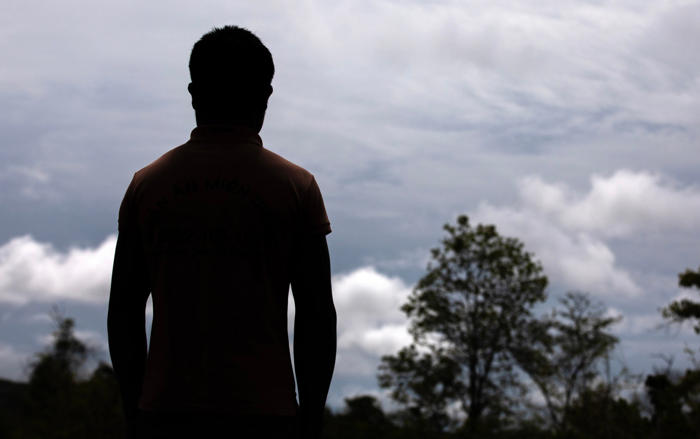
Kosai was dragged into a carousel of debt after his wife injured her leg in a motorcycle accident - Torbjörn Wester
The two bank representatives stood for several hours outside Dara’s house. They came from Amret, one of Cambodia’s microfinance institutions, to collect the monthly payment that Dara was late with.
“When they saw my 16-year-old daughter coming out of the house, one of them suggested that I sell her to a KTV bar to pay off the loan,” says Dara, whose name has been changed to protect his anonymity.
The problems began last year, when Dara, who is a small-scale farmer in Ratanakiri in northeastern Cambodia, took out a so-called microloan of $2,400 to buy herbicides and other farming products. Amret, which up until now has been partly owned by several major state-owned international development institutions, including British International Investment, quickly granted the loan, Dara says.
But the cassava harvest didn’t turn out the way Dara had hoped and he was left with debt he couldn’t pay. Under pressure from Amret, he sold a piece of land to pay off half of the loan. But soon he fell behind on payments again. That was when the bank representatives came up with their proposal.
“Noone in our village would sell their child. It’s unheard of,” Dara says.
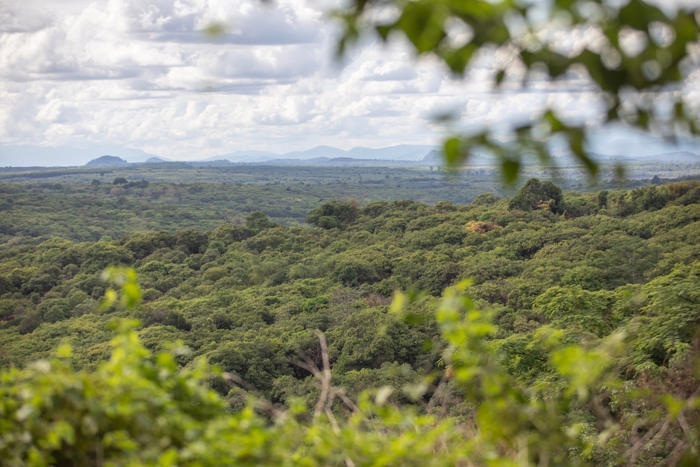
Ratanakiri is one of the least developed provinces of Cambodia - Torbjörn Wester
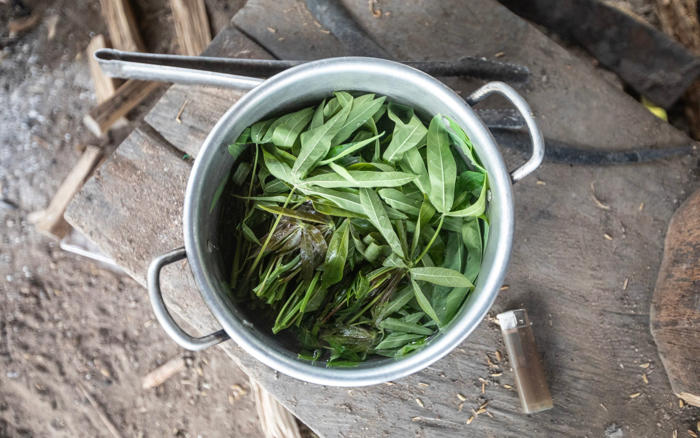
The family of Dara, a small-scale farmer in Ratanakiri, eat significantly less food since they ended up in a debt trap. Often a meal consists mainly of cassava leaves - Torbjörn Wester
For Dara’s family of seven, the loan that was supposed to give them a harvest to live on has instead put them in a situation of despair and insecurity. “We used to eat three times a day, both meat and fish. Now we eat twice a day to be able to afford to pay off the loan, often just cassava leaves.”
It was the Bangladeshi economist Muhammad Yunus who, in the 1980s, popularised the idea of microcredit as a way of reducing poverty. His bank Grameen lent small sums to those who were otherwise too poor to qualify for a loan, to stimulate development of small businesses. Following Grameen’s alleged success in Bangladesh, the international donor community spent billions in the coming decades to create a raft of new microcredit institutions in Africa, Asia and Latin America.
The UN proclaimed 2005 the “International Year of Microcredit” and the following year Muhammad Yunus – who once famously predicted that microfinance would relegate poverty to museums – received the Nobel Peace Prize. Microcredit became a panacea for the global donor community.
But there have long been worrying signals that the model might be flawed. Dara’s village in Ratanakiri is visited almost daily by young, smartly dressed men on motorcycles, representatives of some of Cambodia’s many microfinance institutions, such as Amret, LOLC and Prasac. They are looking for new customers and make home visits to existing ones to collect monthly payments. A majority of the families in Dara’s village have taken out microloans and many of them have ended up in debt traps that make the mere sight of these men uncomfortable.
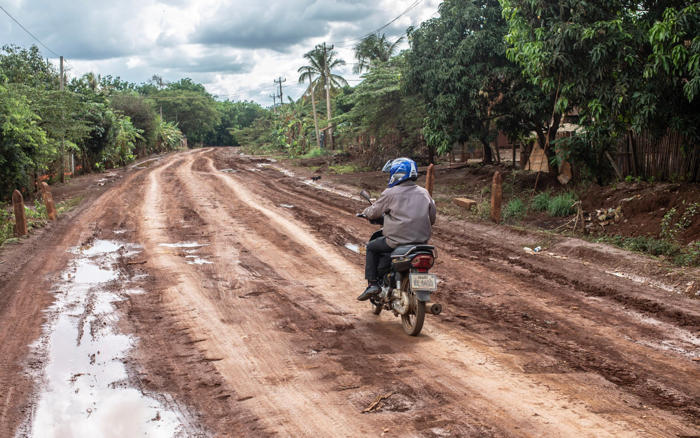
Representatives for microfinance institutions – smartly dressed men on motorcycles – are often seen in the villages in Cambodia - Torbjörn Wester
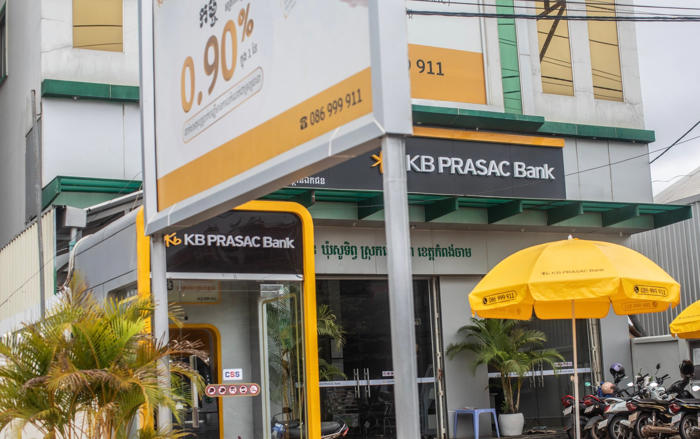
Prasac is one of the major Cambodian microfinance institutions. It originated in 1995 as an EU funded development project and transformed into a commercial operation - Torbjörn Wester
For Dara’s neighbor Kosai, whose name also has been changed to protect his anonymity, the debt carousel began when his wife injured her leg in a motorcycle accident. To pay the hospital bills, the family took out a loan from an informal lender, a loan that they then partly redeemed by taking out new loans from LOLC and Amret. But soon they found themselves struggling with their monthly payments.
“Amret’s representative first suggested that I could sell a child or my wife. When I didn’t want to, he suggested that I could sell some of my farmland,” says Kosai.
He says that he was given only one week to complete the sale and that he was forced to accept a below-market offer. But the money was only enough to pay off parts of the loans.
“Everything I earn goes to the loans,” he says. “We used to be able to eat well, but not anymore. But I can’t swallow the food properly anyway, I think too much.”
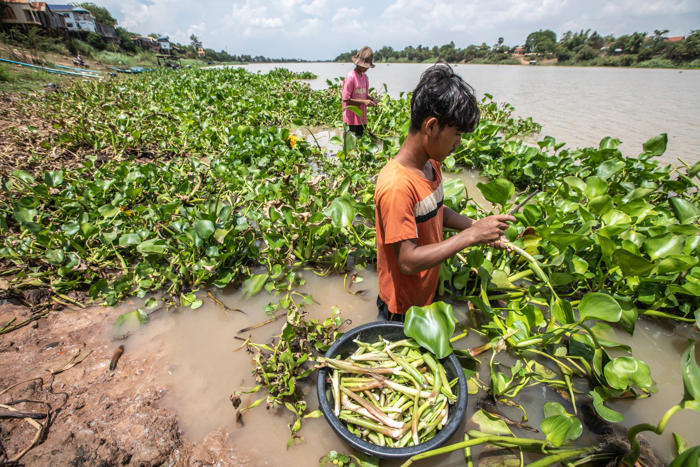
Young men harvesting kamploak in the Tonle Sap river in Cambodia - Torbjörn Wester
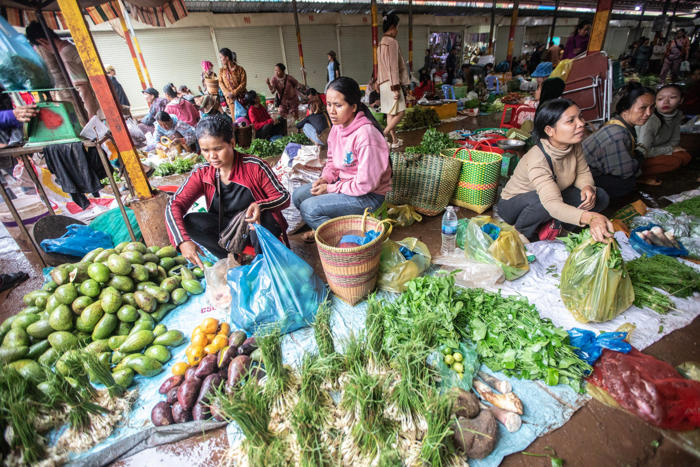
A market in Ratanakiri, Cambodia - Torbjörn Wester
The loans Kosai took are typical of how the global microfinance market has evolved over the years. Milford Bateman, an associate researcher at Fluminense Federal University in Rio de Janeiro, and adjunct professor in global development studies at St Mary’s University in Halifax, has published widely on issues related to microfinance. He says that the subsidised microcredit model originally inspired by Grameen Bank was sidelined globally in the 1990s in favor of a for-profit microcredit approach that encouraged rapid expansion in order to maximise profits.
Later on, the idea that microloans were taken out to fund individual entrepreneurship was also dropped. Most microloans today are simply to cover living expenses, healthcare, education and consumer goods, according to Bateman.
“The early microfinance institutions survived mainly on donor and philanthropic funding. But later on, they were told to become self-sustaining businesses aiming to make a profit. So they did,” he says.
Certainly, there are many examples of families in the Global South being helped out of poverty with microloans. In Latin America, these are called ‘Donna Maria stories’, says Milford Bateman. “You can see them on the websites of the microfinance institutions. A story about some woman who borrowed 60 dollars and opened a store and then another one and then earned income enough to educate her children and build a house”.
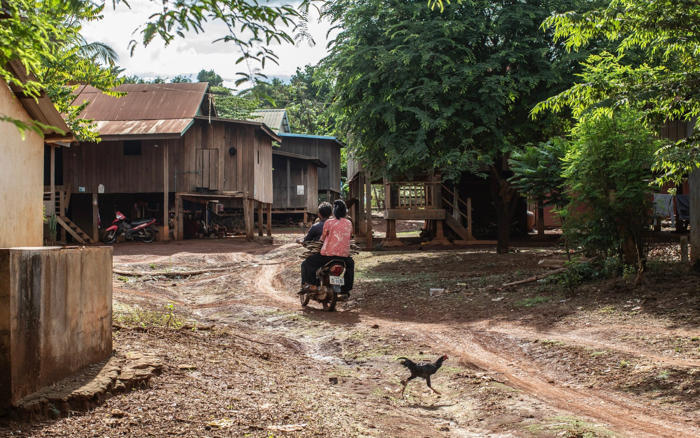
A village in Ratanakiri in northeastern Cambodia - Torbjörn Wester
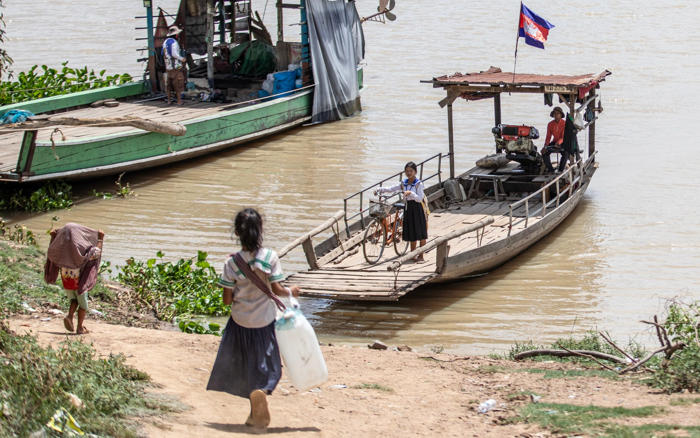
A ferry in the Tonle Sap river in Cambodia - Torbjörn Wester
But, in Milford Batemans view, they are rare exceptions.
“I don’t disagree that you can see some benefits from microfinance. But these benefits are very small potatoes and they’ve been swamped, certainly since the 2000s, by the serious and growing downsides to the model.”
Several of the countries where the international donor community has invested in building microfinance institutions have also seen rapid economic development for many years. But microfinance can hardly be given credit for that, says Milford Bateman.
Instead, it is the opposite – increasing prosperity has enabled and encouraged the industry’s commercialisation; slowly it has moved away from small enterprise specific development loans towards high profit consumer lending.
“Microcredit is now seen by the global financial markets as one of the most profitable investment areas of all,” says Milford Bateman.
Reports about harmful effects of microloans have emerged from many parts of the world over the years, most notably strings of suicides in India and Sri Lanka. But nowhere do reports of negative consequences seem to come as frequent as in Cambodia, the country in the world with the largest amount of microcredit per capita, 2.9 million loans totaling $16 billion.
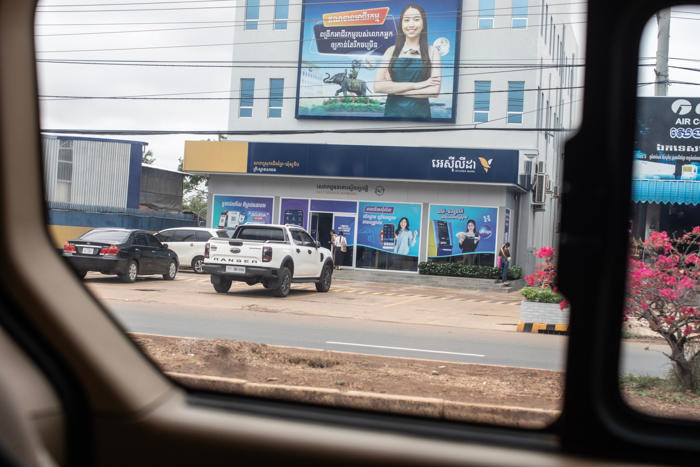
Acleda was established in 1992 as an NGO focusing on micro enterprise development. It is now one of the largest commercial banks in Cambodia, with a significant microloan portfolio - Torbjörn Wester
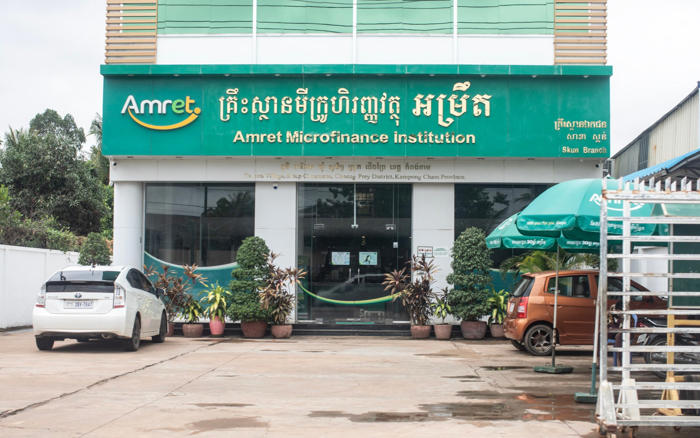
Amret, one of the microfinance institutions in Cambodia, has up until now been partly owned by several major state-owned international development institutions, including British International Investment. It is to be sold to Taiwan's Bank SinoPac - Torbjörn Wester
Several of the leading financial institutions with microcredit portfolios in Cambodia began as NGO initiatives in the 1990s, supported by the international development community. State development institutions and development banks still continue to be heavily invested in the industry but from 2010 and onwards the sector was discovered by foreign private investors and with the inflow of commercial funding it began to grow rapidly.
According to Cambodian NGOs Licadho and Equitable Cambodia this has also led to a rise in predatory lending practices including coerced land sales, threats and intimidation. In a quantitative study from 2023 of 717 Cambodian families with microloans, 18 per cent reported eating less food because of the debt burden. 3 per cent had at least one child who had to leave school because of the loans. 6 per cent had sold land in order to repay loans.
According to the report, the figures are related to the fact that debt repayments accounted for 67 per cent of a household’s total monthly expenses, on average. “This level of over-indebtedness effectively guarantees that households are trapped into making increasingly harmful sacrifices […] to make repayments” write the authors of the report.
In 2022 Licadho and Equitable Cambodia filed a complaint with the watchdog of the International Finance Corporation (the World Bank’s private lending arm), alleging its funding of microfinance institutions led to severe negative social impacts, because of predatory and deceptive lending and loan collection practices. The complaint is currently under review.
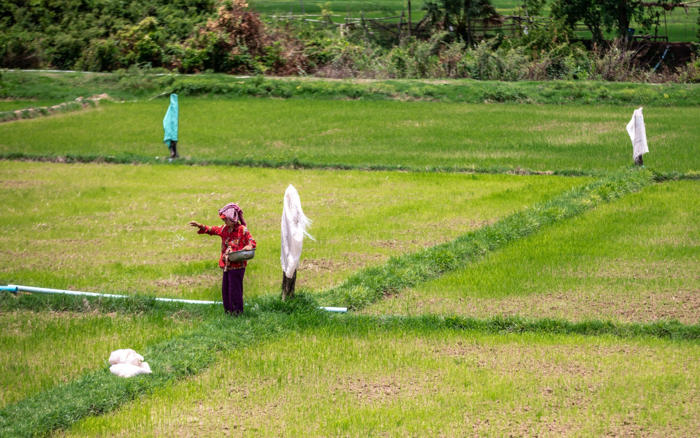
A rice field in Cambodia - Torbjörn Wester
Cambodia Microfinance Association (CMA) represents the microfinance industry in the country. Kaing Tongngy, head of its communications department, acknowledges in an email to The Telegraph some of the hardships that indebted families in Cambodia face.
“CMA understands the challenge faced by individuals and families in meeting their financial obligation and we are dedicated to providing support and guidance to borrowers in need,” he writes. But he also claims that “not all land sales represent a profound economic and social collapse for the households, partly due to the progression of land prices in Cambodia.”
Kaing Tongngy further writes that the industry has grown beyond serving the poor. “Microfinance is not the only one mechanism contributing to poverty reduction. All relevant parties and other mechanisms must play their role to reduce the poverty.”
Three of the families in Ratanakiri interviewed by The Telegraph claim that representatives from Amret had threatened them by suggesting that they sell family members to repay loans. Amret is still owned by several international development institutions including British International Investment but is to be sold to Taiwan’s Bank SinoPac for $543 million.
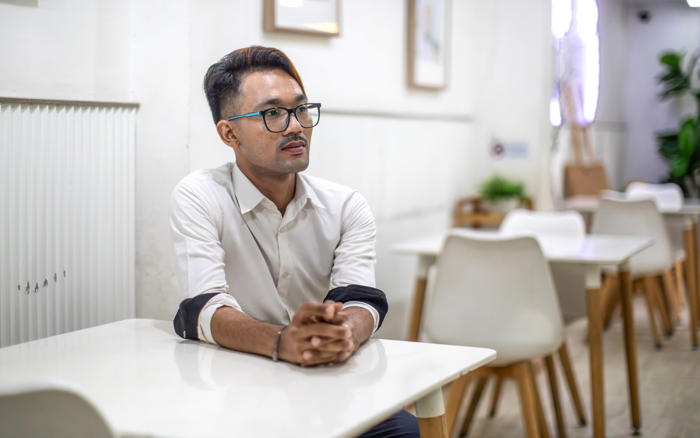
'Meta', a young Cambodian, spends most of his income repaying a loan his family took out in 2019 to treat his mother's heart condition - Torbjörn Wester
Dos Dinn, CEO of Amret, writes in an email that The Telegraph’s findings in Ratanakiri “runs counter to everything we stand for at Amret.” He continues: “The reason for our existence is to strengthen our local communities by offering financial services to people and families who lack access to traditional banking services.” He encourages the families to file a formal complaint with Amret so that the incidents can be investigated.
There are close to 3 million microloans in Cambodia, in a population of just under 17 million.
No one knows how many of them skip meals and go hungry. But they are easy to find.
“Meta”, a young Cambodian who asked to use only his nickname, is one of them. In 2019, his family took out a loan from Prasac to pay for care for the mother, who has a heart condition, and to finance a noodle restaurant run by Meta. But the restaurant went out of business when the pandemic came. In recent months, the family has been late with payments, despite the fact that Meta, who is working on an interview project to document abuses during the Pol Pot regime in the 1970s, spends most of his income on the loans. At times, the loans have driven him into depression. He skips breakfast to save money.
“I have to force myself to think that the first thing is the debt. After we have repaid, we can deal with everything else in life”.
Protect yourself and your family by learning more about Global Health Security
Play The Telegraph’s brilliant range of Puzzles - and feel brighter every day. Train your brain and boost your mood with PlusWord, the Mini Crossword, the fearsome Killer Sudoku and even the classic Cryptic Crossword.
